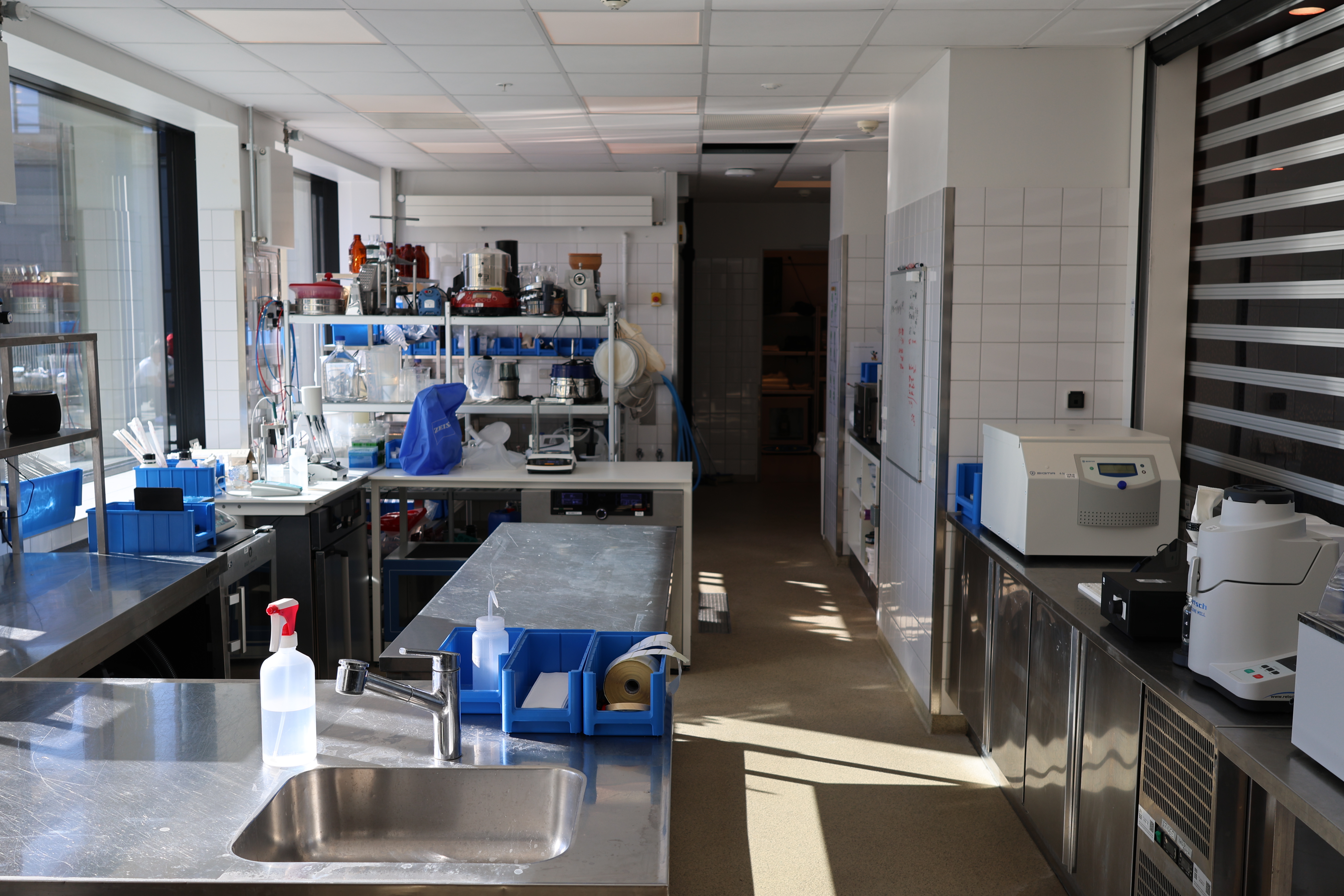R&D Kitchen
Biosustain Food Lab
Chefs are emerging as key innovators in the culinary world, while food engineering continues to broaden its reach through new collaborations and partnerships. The Biosustain Food Lab involves blending microbiology, food engineering and materials science with the culinary expertise of chefs. By doing this, we aim to develop new foods that are both sustainable and delicious and thereby create new opportunities for advancement in the food field.
Biosustain Food Lab: a space of co-creation
The Food Lab consists of an experimental kitchen headed by a research chef with a broad knowledge of traditional food fermentation, gastronomy and flavour, interacting with researchers, scientists, graduate students, postdocs and technicians, combining scientific innovations with culinary techniques to address mounting concerns for food sustainability and bringing the gastronomic dimension to the product development process.
The Food Lab consists of a well-equipped experimental kitchen alongside food grade scientific equipment. The experimental kitchen has instrumentation to accurately measure temperature, pH, soluble solids, colour and water activity, and apparatus for high-speed homogenization, freeze-drying, centrifugation, vacuum distillation, incubation and climate controlled solid-state fermentation.
Product and process development
The Biosustain Food Lab can assist in creating innovative recipes, flavour profiles, and textures that meet modern consumer preferences. Experimenting with ingredients, techniques, and technology to push the boundaries of traditional food products, leading to the development of unique, high-quality offerings.
Knowledge of traditional fermentations can greatly assist in modern microbial food development by offering time-tested methods and insights that can be adapted and optimized for and inspire contemporary needs.
Engagement
We also use the Food Lab as a means to communicate complex concepts from science in a more accessible and engaging way. By incorporating culinary techniques and food preparation into scientific discussions, it becomes possible to demonstrate how microbes interact with food, how fermentation processes work. This approach allows for a hands-on, sensory experience that helps people better understand abstract scientific principles.
Links
Food fermentation in space: Opportunities and challenges https://www.cell.com/iscience/fulltext/S2589-0042(25)00450-X
A space miso dinner.

Contact
Kim Wejendorp Head R&D Chef kimwej@dtu.dk
Nurdin Topham R&D Chef nutoph@dtu.dk